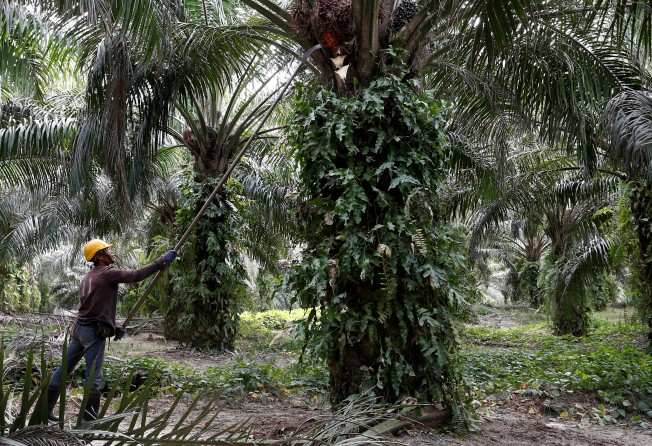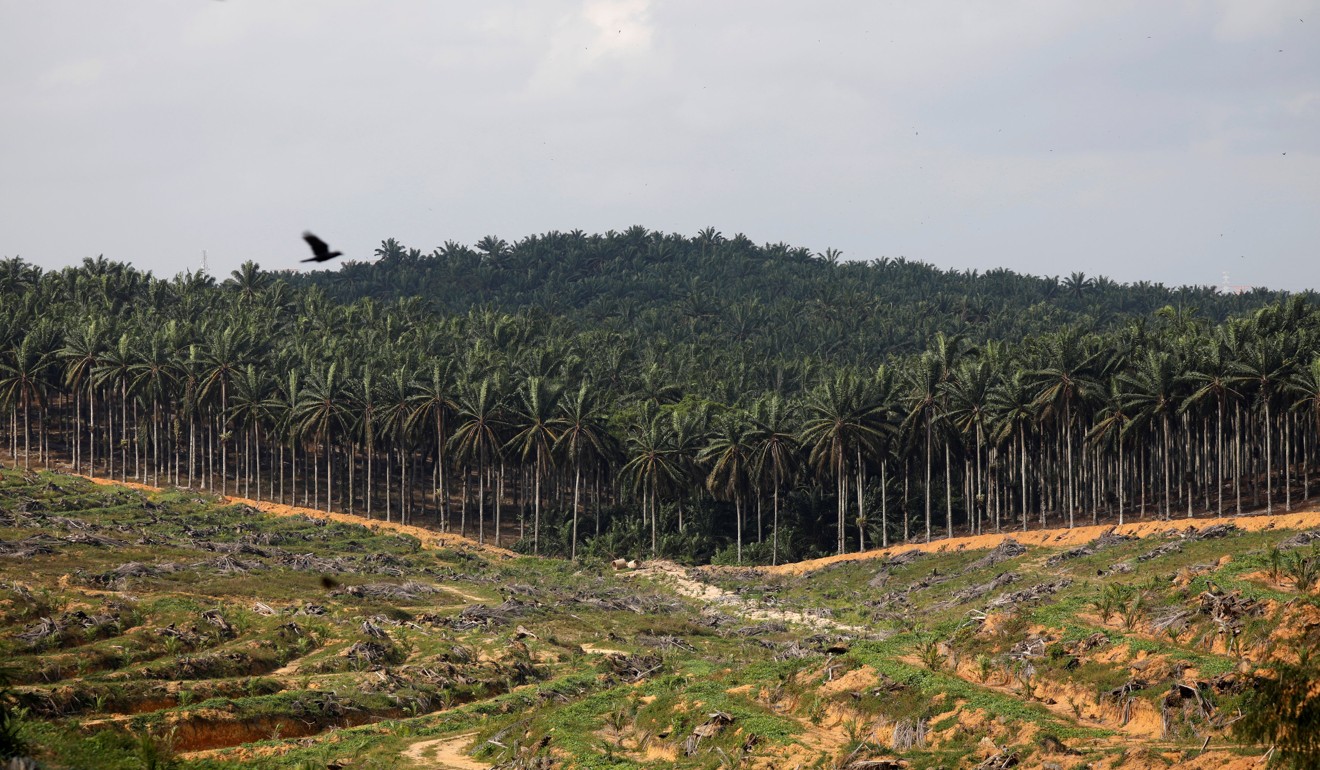Malaysia dangles post-Brexit trade deal in front of Britain if it breaks with EU on palm oil ban
- Malaysian Prime Minister Mahathir Mohamad says Britain can expect better trade with Southeast Asia if it takes a ‘fresh attitude’ on palm oil after it leaves the EU
- He also described the EU’s move to phase out palm oil as ‘misguided’ and a ‘form of modern colonialism’

Malaysian Prime Minister Mahathir Mohamad on Monday called on Britain to engage with palm oil growers to incentivise sustainable production, rather than pursuing boycotts after its scheduled exit from the European Union on October 31.
Mahathir’s comments, carried in on opinion column for Bloomberg, follow a move by the EU to phase out and eventually ban palm oil usage in biofuels. Top growers Indonesia and Malaysia have said they would file a complaint to the World Trade Organisation to challenge the move.
“The key is to rethink the European Union’s misguided policy on palm oil,” Mahathir said. “A fresh attitude toward palm oil, unencumbered by influential special-interest groups, could lead to even better trade terms between the UK and the region than it currently enjoys.
“We hope to avoid a trade war with Europe. But if one transpires, that doesn’t mean the UK has to get caught in the crossfire,” he wrote.
The world’s most used vegetable oil can be found in everything from biscuits to shampoo and biofuel, but has come under constant fire from environmentalists saying that production of the crop causes deforestation and aggravates climate change.
In March, the European Commission determined that palm oil cultivation had resulted in excessive deforestation and it should no longer be considered a renewable transport fuel, albeit with some exemptions.
While Mahathir acknowledged the importance of environmental sustainability and deforestation in trade talks, he said that “the answer is not to single out one commodity and ban it” and called the EU’s move “a form of modern colonialism that has no place in today’s world”.
Mahathir called for dialogue and engagement to achieve joint solutions, including better regulation and stronger certification standards.

“This is why Malaysia still holds out the hand of friendship to the EU in the hope that a fair, honest and reciprocal trade relationship can be salvaged,” he added. “Making this a reality depends on the EU doing what several environmental experts have already advised – incentivise sustainable palm oil production rather than pursuing boycotts and protectionism.”
Mahathir wrote that the EU justified the ban on environmental grounds, but the move was “designed to protect the agricultural industries of a few EU states”. He also argued that EU nations which produce competing oilseeds such as rapeseed do so far less efficiently, and use more fertiliser and pesticides.
Progress has also been made in developing certification mechanisms for more sustainable palm oil production, and the Malaysian Sustainable Palm Oil standards are now adopted by other countries, he said.
“Sustainable and responsible production is crucial to the long-term health of our industries, too,” Mahathir wrote.
Plantations used in palm oil production account for 10 per cent of all global cropland. An estimated three billion people in 150 countries use products containing palm oil, meaning that each person consumes an average of 8kg of palm oil a year.
Of this, 85 per cent comes from Malaysia and Indonesia, where worldwide demand for palm oil has created employment and boosted livelihoods – but at the cost of widespread environmental devastation and often with attendant labour and human rights abuses.
Worldwide production of palm oil has been climbing steadily for five decades. Between 1995 and 2015, annual production quadrupled, from 15.2 million tonnes to 62.6 million tonnes. By 2050, it is expected to quadruple again, reaching 240 million tonnes.